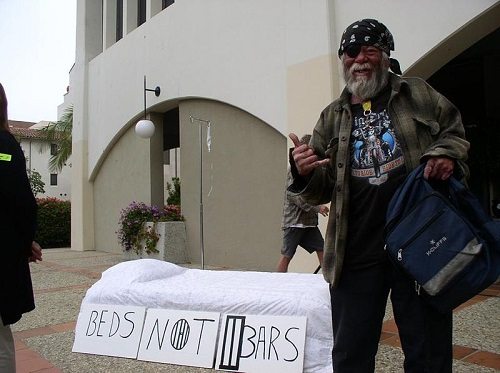
January 21, 2014; Bangor Daily News
In 2012, the NPQ Newswire watched as a homeless bill of rights progressed through the Rhode Island legislature on its way to Governor Lincoln Chafee’s desk. The historic legislation prompted us to ask what a homeless bill of rights should contain.
The idea of a homeless bill of rights has recently captured the attention and perhaps the imagination of many other localities and states. This month, Duluth, Minnesota passed a homeless bill of rights resolution, though both its sponsor, City Councilor Sharla Gardner, and the executive director of the city’s largest homeless shelter, Lee Stuart with CHUM, referred to the resolution as “symbolic.” In Vermont, state representative Kesha Ram, a Democrat, has introduced a homeless bill of rights bill, and in Hawaii, HB1889, introduced by state senator John Mizuno, another Democrat, would do the same.
Sign up for our free newsletters
Subscribe to NPQ's newsletters to have our top stories delivered directly to your inbox.
By signing up, you agree to our privacy policy and terms of use, and to receive messages from NPQ and our partners.
In the wake of Rhode Island’s bill, Connecticut also passed a homeless bill of rights law last year. In Connecticut, the enumerated rights of the homeless are as follows:
- Move freely in public spaces, including on public sidewalks, in public parks, on public transportation and in public buildings without harassment or intimidation from law enforcement officers in the same manner as other persons;
- Have equal opportunities for employment;
- Receive emergency medical care;
- Register to vote and to vote;
- Have personal information protected;
- Have a reasonable expectation of privacy in his or her personal property; and
- Receive equal treatment by state and municipal agencies.
The proposed bill of rights in Hawaii contains the same list of rights. Like the homeless bill of rights that was enacted by the state of Illinois last year, the protections accorded the homeless appear to deal with the deprivation of services they face because of the lack of a permanent address. What these bills do not propose, even symbolically, is that the homeless have a right to that which would make them no longer homeless—a right to shelter or a right to housing.
Sometimes, you have to wonder what the legislators might be thinking when they propose a homeless bill of rights. The sponsor of the pending Hawaiian legislation, State Senator Mizuno, was also the prime mover behind the state’s “Return to Home” program, designed to give some of the state’s 17,000 homeless one-way tickets out of the state. The theory of Mizuno and others is that it is cheaper for the state to hand out airline tickets to the homeless than to pay for their longer-term needs for housing and services. Mizuno’s ticket scheme might, if it were effective, reduce the numbers of the homeless in Hawaii, but wouldn’t do a thing to get at the causes of their homelessness.
Hopefully, these homeless bill of rights initiatives can serve as broad-based mechanisms for educating the public about the conditions faced by homeless persons and for mobilizing advocates for the homeless to press for proven homeless housing programs such as Housing First. –Rick Cohen













